Sichun Yang
Concept and Attribute Reduction Based on Rectangle Theory of Formal Concept
Oct 29, 2021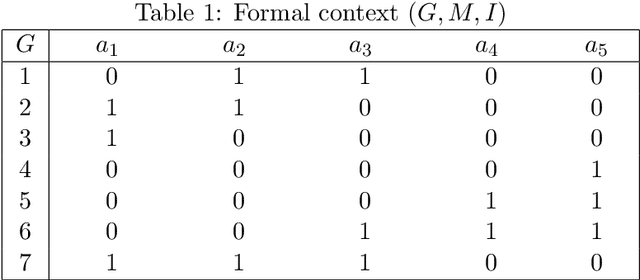
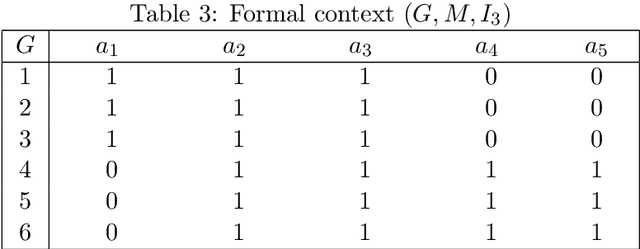
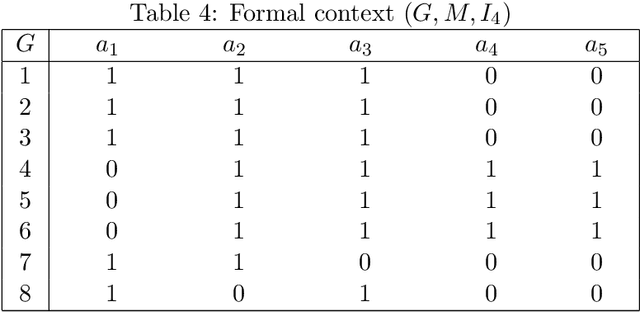
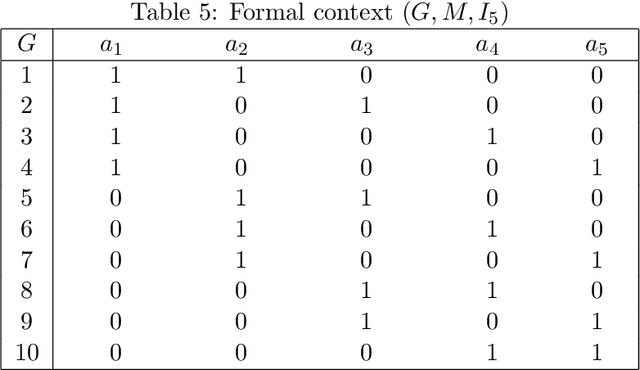
Abstract:Based on rectangle theory of formal concept and set covering theory, the concept reduction preserving binary relations is investigated in this paper. It is known that there are three types of formal concepts: core concepts, relative necessary concepts and unnecessary concepts. First, we present the new judgment results for relative necessary concepts and unnecessary concepts. Second, we derive the bounds for both the maximum number of relative necessary concepts and the maximum number of unnecessary concepts and it is a difficult problem as either in concept reduction preserving binary relations or attribute reduction of decision formal contexts, the computation of formal contexts from formal concepts is a challenging problem. Third, based on rectangle theory of formal concept, a fast algorithm for reducing attributes while preserving the extensions for a set of formal concepts is proposed using the extension bit-array technique, which allows multiple context cells to be processed by a single 32-bit or 64-bit operator. Technically, the new algorithm could store both formal context and extent of a concept as bit-arrays, and we can use bit-operations to process set operations "or" as well as "and". One more merit is that the new algorithm does not need to consider other concepts in the concept lattice, thus the algorithm is explicit to understand and fast. Experiments demonstrate that the new algorithm is effective in the computation of attribute reductions.
Granule Description based on Compound Concepts
Oct 29, 2021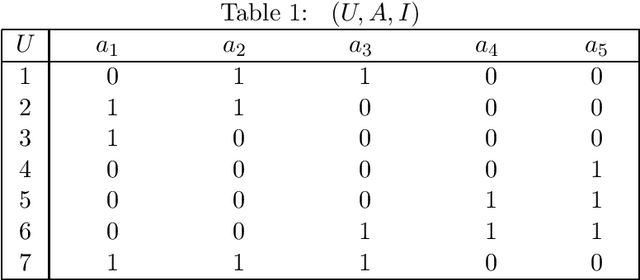


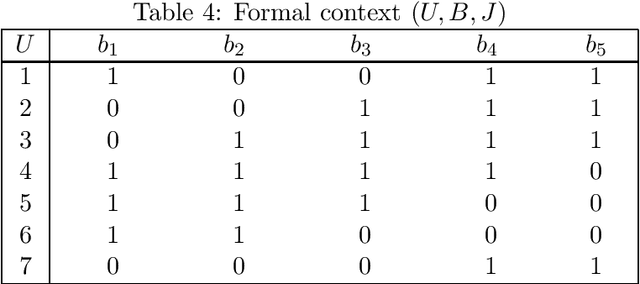
Abstract:Concise granule descriptions for describable granules and approaching description methods for indescribable granules are challenging and important issues in granular computing. The concept with only common attributes has been frequently studied. To investigate the granules with some special needs, we propose two new types of compound concepts in this paper: bipolar concept and common-and-necessary concept. Based on the definitions of concept-forming operations, the logical formulas are derived for each of the following types of concepts: formal concept, three-way concept, object oriented concept, bipolar concept and common-and-necessary concept. Furthermore, by utilizing the logical relationship among various concepts, we have derived concise and unified equivalent conditions for describable granules and approaching description methods for indescribable granules for all five kinds of concepts.
A New Algorithm based on Extent Bit-array for Computing Formal Concepts
Oct 29, 2021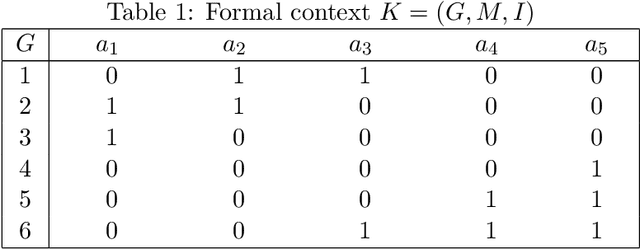
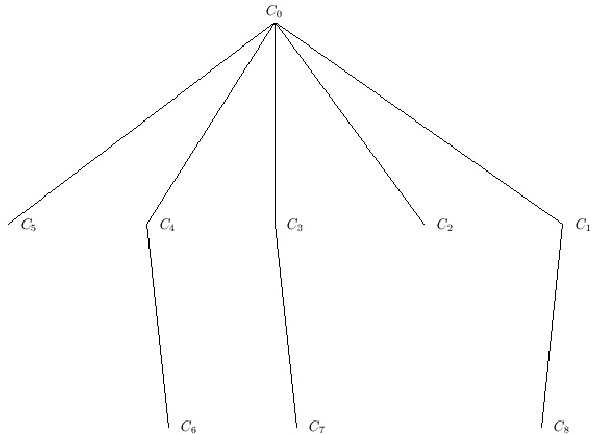

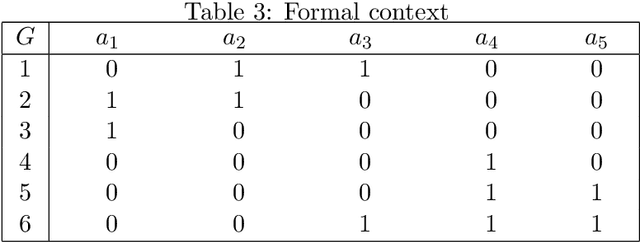
Abstract:The emergence of Formal Concept Analysis (FCA) as a data analysis technique has increased the need for developing algorithms which can compute formal concepts quickly. The current efficient algorithms for FCA are variants of the Close-By-One (CbO) algorithm, such as In-Close2, In-Close3 and In-Close4, which are all based on horizontal storage of contexts. In this paper, based on algorithm In-Close4, a new algorithm based on the vertical storage of contexts, called In-Close5, is proposed, which can significantly reduce both the time complexity and space complexity of algorithm In-Close4. Technically, the new algorithm stores both context and extent of a concept as a vertical bit-array, while within In-Close4 algorithm the context is stored only as a horizontal bit-array, which is very slow in finding the intersection of two extent sets. Experimental results demonstrate that the proposed algorithm is much more effective than In-Close4 algorithm, and it also has a broader scope of applicability in computing formal concept in which one can solve the problems that cannot be solved by the In-Close4 algorithm.
 Add to Chrome
Add to Chrome Add to Firefox
Add to Firefox Add to Edge
Add to Edge